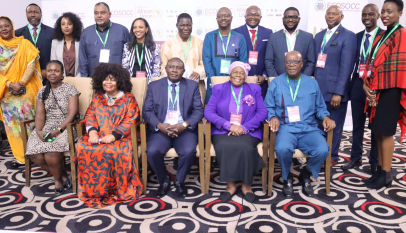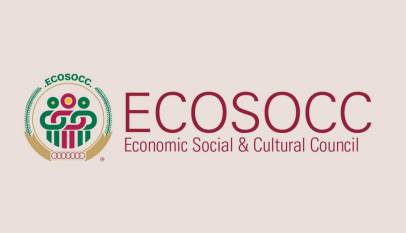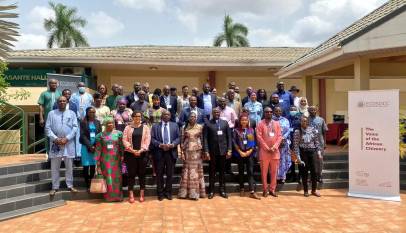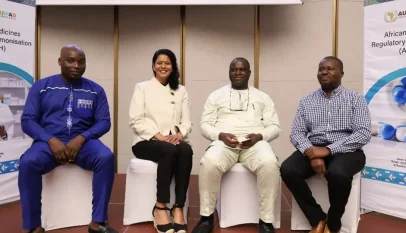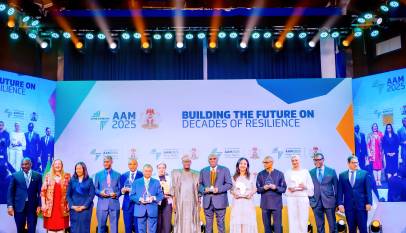INTERVIEW | How AU ECOSOCC is supporting Africa’s response to COVID-19 – Kyeretwie Osei
Kyeretwie Akwasi Osei, head of programmes at the African Union Economic, Social and Cultural Council (AU ECOSOCC), speaks about AU ECOSOCC’s partnership with the African Development Bank (AfDB) in support of the continental response to COVID-19
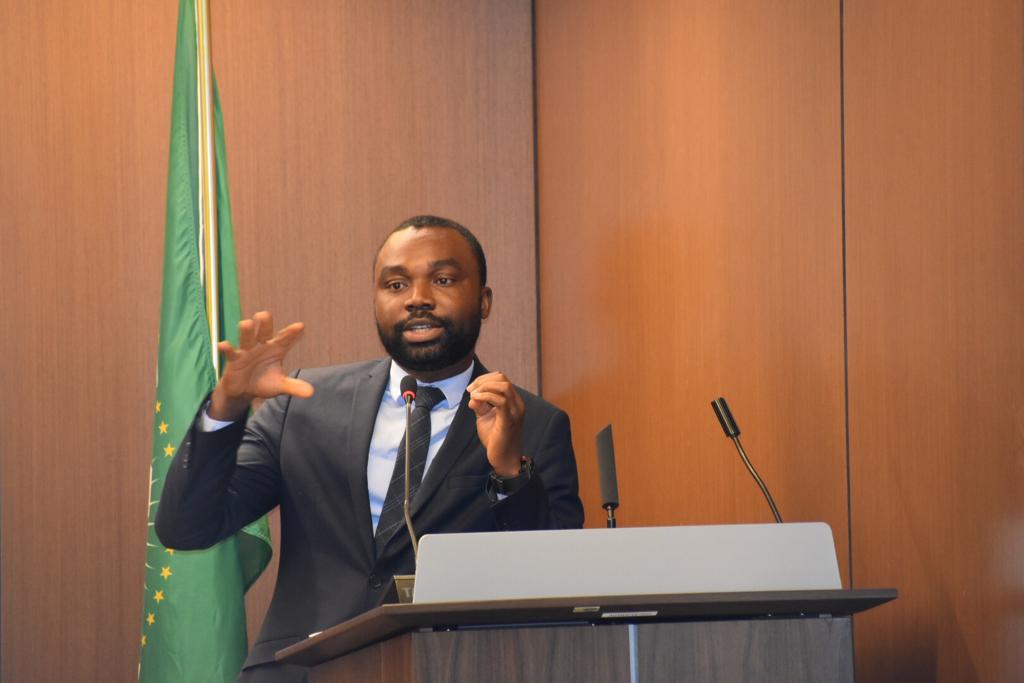
Newspage: Can you share with us AU ECOSOCC’s plans in terms of responding to the COVID-19 pandemic in Africa?
Osei: Our contribution to the ongoing efforts to prevent the spread of COVID-19 in Africa is focused on sensitization and education. As you know, there are other components of the African Union system that are at the forefront of the fight against the virus at clinical level, particularly the Africa Centres for Disease Control (Africa CDC), who are leading the clinical fight against the virus.
As civil society-focused organ of the AU, we think the value we can bring to this campaign is by leveraging the networks and linkages that we have with the African citizenry through the membership of ECOSOCC, which is composed of civil society organizations from across the continent, to increase visibility and awareness about the pandemic in terms of important information people need to know to make themselves and their families safe.
We are trying to make sure people have access to the right clinical and medical advisories that the Africa CDC and the respective ministries of health of Member States are putting out to make sure they are safe.
Newspage: You are, in partnership with the AfDB and Africa CDC, organising series of weekly awareness creation webinars. How far have you gone with that?
Osei: We have launched a weekly webinar series in partnership with the Civil Society Organisations (CSOs) division at AfDB, which holds every Friday; for each webinar we focus on a specific topic and work with relevant CSOs. The first webinar took place around the time the infections were beginning to take hold on the continent, so we focused on making sure the people understood exactly what the virus was about, how it spreads from person to person, what were its symptoms as well as the measures people needed to take if they suspected they had contracted the virus.
It was more or less a general briefing session to the African citizens to make them aware of exactly what COVID-19 was, how it could be contracted as well as how they could protect themselves from the virus. We worked with the medical professionals from Africa CDC and others who are physicians from within our network of the members of ECOSOCC.
For the second webinar, we hosted a video session with a key official at the CDC who spoke on the progress being made in terms of the interventions they have rolled out at the continental level and also the support they were providing to individual Member States in the form of health advisories for isolation, mitigation and infection control. The CDC emphasized on the key actions African citizens could take as individuals in terms of isolation, social distancing, hand washing etc. So, we were able to disseminate the video across our website, social media platforms and other networks.
Since we are not clinicians, we have continued to work closely with Africa CDC; they produce contents while we amplify their voices to the African people so as to ensure the advisories and guidelines they are producing reach the highest numbers of people. For the third webinar, we partnered with the civil society division of AfDB to host a webinar which highlighted individual cutting-edge interventions by African civil society organizations that could serve as models for other civil society organizations who may also want to contribute to the campaign.
We featured a CSO from Morocco that had been trying to support food security in the context of the pandemic, since the lockdown measures taken by Member States have unintended consequences on food production and farmers are also being impacted by the lockdowns. So, we looked at how we could leverage the partnerships we have within civil society to bring to the attention of the African civil society the need to focus on food security, even as we try to respect the lockdown protocol in place. For instance, we explored potential advocacies we could make to ensure the creation of a mechanism that will guarantee the minimum level of food security.
Another intervention we highlighted at the webinar was by a CSO from Nigeria called Connected Development (CODE), they are using different technologies to reach particularly young people and ensuring the youths are taking the lead. First, in understanding the messages our governments and policymakers are pushing out. Second, in leveraging their social media platforms for peer advocacies within their own demography. This is to make sure that other young people are not disregarding the information being spread by the policymakers. The youths are also encouraged to use the social media to counter disinformation and misinformation by helping people determine what information is real and which is fake.
As an advisory organ of the AU, we are also engaged in policy advocacy to the AU system with very specific policy recommendations on health and economic issues, from civil society perspective. We therefore feel our governments should organize themselves to first of all, address the spread of the virus and also put in place policy interventions that will protect the continent’s population from COVID-19’s impact, health wise and economically. This is part of our role of bringing the civil society to the center of the activities of the Union.
Newspage: How impactful are the webinars you have had so far in terms of sensitizing African citizens on the dangers of COVID-19?
Osei: It has been encouraging, even though we are a few weeks into this campaign. We are encouraged by the fact that the webinar series are increasingly gaining traction, with participation levels increasing week by week, which means we are gaining more visibility. We want to make sure that as many people as possible have access to life saving information. Going forward, we plan to be dynamic and also align our efforts with our continent’s response to the pandemic.
In selecting the topics of our webinars, we try to maximize the topics’ relevance at that particular point in time. Now, we will be focusing on some of the interventions the CDC and Member States are putting forward. We will be bringing in experts to speak about each of the interventions in detail and most importantly, speak about how African citizens, ECOSOCC and civil society generally can organise ourselves in support of these interventions.
For example, we should ask ourselves: do people understand the testing guidelines that are being advocated for by the CDC? What role can we play as the civil society to complement the work of Member States? Also we need to explain to the people what the recommendations being made by WHO and CDC such as social distancing mean. I think we really need to make people understand the basis for social distancing, how to properly engage in social distancing and how to make sure the community as a whole is working together to practice it.
Newspage: As an advisory organ of the AU, are there any takeaway messages that have emerged from the webinars you have conducted so far that you are planning to take forward to the leadership of the AU?
Osei: Yes, absolutely. One of the key outcome of these webinars which we want to bring to the attention of our policymakers is the need to really emphasize government-civil society corporation. There is a clear need for a structure through which the government will engage the citizens through the civil society in order for the interventions being put forward to be successful. Without a robust and constructive platform, it is difficult to disseminate messages to the people of the continent.
So far, what we have seen is: in places where there is a robust mechanism for dialogue between government and civil society, the civil society have been more impactful in reaching the citizenry with messaging. So, I believe we can use this pandemic as a reminder for government and civil society to come together and establish a robust mechanism for seamless information flow to the citizens. The civil society need to work in synergy and not in silos so we don’t continue to duplicate efforts and waste resources.
There is also the need for our Member States to really invest in our public health infrastructure, because it goes without saying that the level of our effectiveness in fighting the spread of the virus will be determined by the strength of our public health infrastructure, which will help create more resilience in our national health systems.
EDITOR’S NOTE: This interview has been edited for length and clarity.


